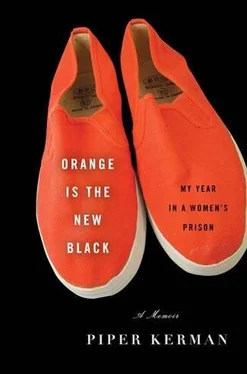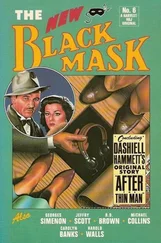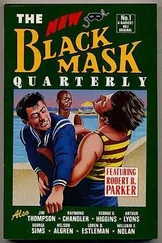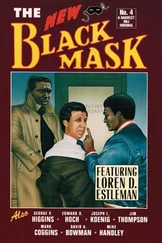Gravity’s Rainbow, all my literary friends consider this the greatest since Under the Volcano. I couldn’t finish either of ’em.
I enclose a couple of posters so that you could get a start on decorating the digs before Martha shows up with all her bundles of frou-frou.
Regards, Winthrop, the Worst Uncle
I began to receive letters from a man named Joe Loya, a writer and a friend of a friend back in San Francisco. Joe explained that he had served over seven years in federal prison for bank robbery, that he knew what I was going through, and that he hoped I would write him back. He told me that the act of writing literally saved his life when he spent two years in solitary confinement. I was startled by the intimacy of his letters, but also touched, and it was reassuring to know that there was someone on the outside who understood something about the surreal world I now inhabited.
Only the nun got more mail than me. On my first day in the Camp someone had helpfully informed me that there was a nun there-in my side-smacked daze, I vaguely assumed they meant a nun who had chosen to live among prisoners. I was correct, sort of. Sister Ardeth Platte was a political prisoner, one of several nuns who are peace activists and served long federal sentences for trespassing in a nonviolent protest at a Minuteman II missile silo in Colorado. Everyone respected Sister (as she was known to all), who was sixty-nine years old and one tough nun, an adorable, elfin, twinkling, and loving presence. Appropriately enough, Sister was Yoga Janet’s bunkie-she liked to be tucked into bed by Janet every night, with a hug and kiss on her soft, wrinkled forehead. The Italian-American prisoners were the most outraged by her predicament. “The fucking feds have nothing better to do than to lock up nuns?” they would spit, disgusted. Sister received copious amounts of mail from pacifists around the world.
One day I got a new letter from my best friend, Kristen, whom I had met in our first week at Smith. In the envelope was a short note, penned on an airplane, and a newspaper clipping. I unfolded it to reveal Bill Cunningham’s “On the Street” fashion column from the Sunday New York Times, February 8. Covering the half-page were over a dozen photographs of women of every age, race, size, and shape, all clad in brilliant orange. “Oranginas Uncorked” was the headline, and Kristen had noted on a blue stickie, “NYers wear orange in solidarity w/ Piper’s plight! xo K.” I carefully stuck the clipping inside my locker door, where every time I opened it I was greeted by my dear friend’s handwriting, and the smiling faces of women with orange coats, hats, scarves, even baby carriages. Apparently, orange was the new black.
CHAPTER 5. Down the Rabbit Hole

After two weeks I was getting much better at cleaning, as inspections took place twice a week and there was considerable social pressure not to fuck up-the winners of inspection got to eat first, and certain extra-tidy “honor cubes” were first among the first. It was amazing how many uses sanitary napkins had-they were our primary cleaning tools.
There was tension in Room 6 over who cleaned and who did not. Miss Luz, who was in her seventies and sick with cancer, was not expected to clean. The Puerto Rican woman in one of the top bunks spoke no English, but she would silently help me and Annette dust and scrub. The bigoted Polish woman who occupied the bunk below me refused to clean, much to Annette’s fury. My tattooed A &O pal pitched in halfheartedly-until she discovered she was pregnant and was quickly moved to a bottom bunk in another room. The BOP doesn’t like lawsuits.
The new girl who took her place in Room 6 was a big Spanish girl. At first I used the politically correct term “ Latina,” as I had learned to do at Smith, but everyone, regardless of color, looked at me as if I were insane. Finally I was firmly corrected by a Dominican woman: “We call ourselves Spanish around here, honey, Spanish mamis.”
This new young Spanish mami sat on the naked mattress of the top bunk, looking dazed. It was my turn to show someone else the ropes.
“What’s your name?”
“Maria Carbon.”
“Where are you from?”
“ Lowell.”
“In Massachusetts? I’m from there, I grew up in Boston. How much time do you have?” She looked at me blankly. “That means, how long is your sentence?”
“I don’t know.”
That stopped me cold. How could you not know your own sentence? I didn’t think this was a language problem-her English was unaccented. I got worried. She looked like she was in shock. “Listen, Maria, it’s going to be okay. We’ll help you. You need to fill out your paperwork, and people will give you the stuff you need right away. Who’s your counselor?”
Maria just looked at me helplessly, and finally I retreated to enlist one of the other Spanish mamis to assist with the new arrival.
ONE EVENING the PA system boomed “ Kerman!” and I scurried to Mr. Butorsky’s office. “You’re moving down into B Dorm!” he barked, “Cube Eighteen! Miss Malcolm will be your bunkie!”
I hadn’t been down into the Dorms (which were “out of bounds” for A &Os). In my imagination they were murky caves populated with seasoned convicts. “He likes you,” said Nina, my expert on all things prison, who was still waiting to get back into her A Dorm cube with Pop. “That’s why he put you with Miss Malcolm. She’s been down a long time. Plus you’ll always be honor cube.” I had no idea who Miss Malcolm was, but I had learned that in prison “Miss” was an honorific conferred only on the elderly or on those who were highly respected.
I gathered my few belongings and nervously advanced down the stairs to B Dorm, aka “The Ghetto,” clutching my pillow and laundry bag stuffed with uniforms. I would have to retrieve my pile of books on a second trip. The Dorms turned out to be large, semisubterranean basement rooms that were a maze of beige cubicles, each housing two prisoners, a bunk bed, two metal lockers, and a stepladder. Cube 18 turned out to be next to the bathroom, on the sole wall with narrow windows. Miss Malcolm was waiting for me in her cube, a petite dark-skinned middle-aged woman with a heavy Caribbean accent. She was all business.
“That’s your locker.” She indicated the empty one, “and these are your hooks. Those hooks are mine, and that’s just the way it’s gonna be.” Her clothes were neatly hung, with her checkered cook’s pants and burgundy smock. She worked in the kitchen. “I don’t care if you’re gay or what, but I don’t want no foolishness in the bunk. I clean on Sunday nights. You have to help clean.”
“Of course, Miss Malcolm,” I agreed.
“Call me Natalie. I’ll make your bed.”
Suddenly a blond head popped up over the cubicle wall. “Hi, new neighbor!” It was the tall, baby-faced white girl who washed dishes in the dining hall. “I’m Colleen!” Colleen looked at my new bunkie cautiously. “How are you, Miss Natalie?”
“Hello, Colleen.” Natalie’s tone expressed tolerance for silly girls, but tolerance with limits. It wasn’t unfriendly or mean, just a bit stern.
“What’s your name, neighbor?”
I introduced myself, and she bounced out of the top bunk and around to the opening of the cube I now shared with Miss Malcolm. I was pelted with questions about my cool weird name, how much time I had, and where I was from, and I tried to answer them one at a time. Colleen was the resident Camp artist, specializing in flowers, fairy princesses, and fancy lettering, and she said, “Oh shit, neighbor, I gotta make your name tag! Write down the spelling for me.” Colleen illustrated cubicle name tags for all new B Dorm arrivals in feminine script with sparkle details on each one-except for the people who had spent time down the hill in the FCI, and thus already had official-looking black plastic ones with white lettering, like Natalie’s.
Читать дальше













